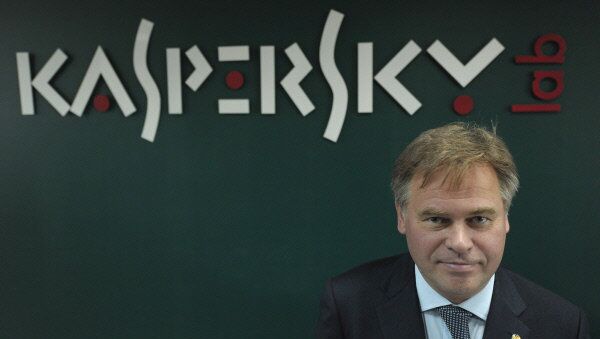WASHINGTON, June 7 (by Karin Zeitvogel for RIA Novosti) – Data technology developed by Russia is fighting Cold War suspicions to compete in US markets, developers said Friday, amid mushrooming revelations about secret US government data surveillance programs.
But that drive to win contracts has no motives other than making money in a free market and is not rooted in Russia’s track record of monitoring the communications of its own citizens, as critics are starting to accuse the US government of doing, they said.
“We’re a 22-year-old independent company formed by individuals who quit their day jobs and started a new company from scratch,” said Alexey Khitrov of the New York office of SpeechPro, a voice biometrics company based in the Russian city of St. Petersburg.
“All of our technology, we’ve developed ourselves, and through hard work and R&D, we’ve grown into one of the world leaders in the voice recognition market,” Khitrov told RIA Novosti in a phone interview.
Khitrov said that a story in one online tech journal, claiming that SpeechPro grew out of a company born in the Soviet gulag system, was not true.
“We have no roots in any government agencies anywhere, none of the agencies mentioned in articles that you might have read,” he said.
SpeechPro established a presence in the United States for the same reasons all other foreign companies do: because it’s a huge market and, for high tech companies, the birthplace of their industry, Khitrov said.
The Russian tech company does business with private commercial interests as well as government entities, he added.
But rather than building applications that could be used to spy on Americans, it develops voice recognition software that has the potential to make people’s online lives easier, like a vocal recognition password to replace the need to type passwords on keyboards.
Another Russian company that has established itself as a solid competitor in the United States is Kaspersky Labs.
Writing about the company, Wired Magazine harkens back to its Soviet origins, noting that it was founded in the late 1990s by Yevgeny Kaspersky, a 1987 graduate of “the KGB-backed Institute of Cryptography, Telecommunications and Computer Science.”
After his studies, Kaspersky was commissioned as an intelligence officer in the Soviet army, leaving a few years later to pursue his passion: computer viruses, Wired says.
Kaspersky reacted angrily to the Wired article, saying he was misquoted.
The company Kaspersky founded and still runs sells a popular anti-virus software in 200 countries, including the United States, and tracks and exposes cyber bad guys around the world.
Last week, a report issued by Kaspersky Labs blew the lid off a massive secret surveillance operation – not by the US government against cell phone and email users but by a group of “about 50 individuals, most of which speak Chinese natively and have working knowledge of the English language.”
Most of the victims of the extensive cyber-spying operation were in Mongolia, India and Russia, although some were in the United States. Victims included oil companies, scientific research centers and universities, private companies, government institutions, embassies and military contractors, the report said.
Other Russian tech companies with a US presence include Discovery Telecom, which describes itself on its website as a “source of wholesale cellular and satellite equipment.”
One of the products the company sells is the AIBIS system, which can be used to “intercept incoming and outgoing GSM communications with any type of encryption, in real-time,” Discovery says on its website. GSM, which stands for Global System for Mobile communications, is used by AT&T and T-Mobile in the United States, and is said to be the world’s most widely used cell phone technology.
The AIBIS is made in Russia and sold worldwide, but it's unclear if it is widely used in the United States.




